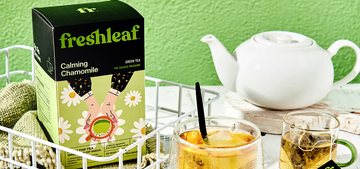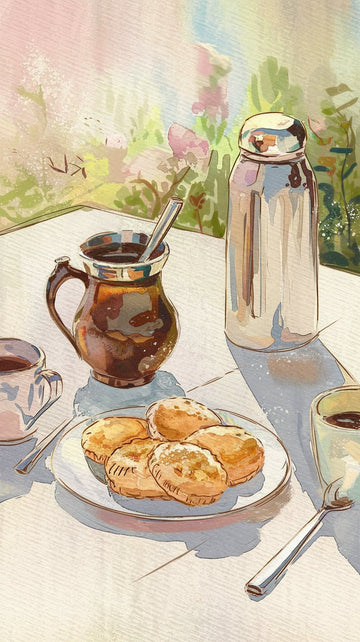If you’re a health enthusiast who enjoys a warm cup of tea, you may have wondered whether or not tea contains caffeine. While black tea, espresso, and coffee bring the most caffeine to the table, it would be surprising to know that tea packs a moderate amount as well. Caffeine is a natural stimulant found in various beverages. Its popularity as a natural stimulant is unparalleled. It’s found in over 60 plant species and enjoyed across the globe, especially in coffee, chocolate, and tea.
Caffeine is found in over 60 plant species, making its way into our daily lives through coffee, chocolate, and of course, tea. Known for enhancing mood, alertness, and even metabolism, caffeine’s popularity is widespread. However, everyone experiences caffeine differently. Regular tea drinkers, for example, may build up a tolerance over time, requiring more tea to feel the same effects, while others might experience restlessness, insomnia, or anxiety from even small amounts of caffeine. For those sensitive to its effects, understanding the levels of caffeine in different types of tea can help in choosing the right blend to enjoy.
When we talk about the caffeine content in tea, first, it’s important to understand that tea comes from the leaves of the Camellia Sinensis plant. This plant is native to East Asia and is the source of most traditional teas, such as green tea, black tea, oolong tea, and white tea. These types of tea all contain caffeine, although the amount can vary depending on factors such as the type of tea, the brewing time, and the water temperature.
Let’s first start by talking about the tea that everyone has in their mind. Yes, green tea. Green tea is known for its health benefits and is rich in antioxidants, however, it also contains caffeine, although in a lower amount compared to other types of tea. On average, a cup of green tea contains about 25-29 milligrams of caffeine. This is significantly less than a cup of coffee, which typically contains about 95 milligrams of caffeine, but, there is caffeine there, so consume accordingly!
Moving to black tea, known for its bold flavor and darker color, undergoes full oxidation, giving it a robust taste and slightly higher caffeine content. A cup of black tea generally contains about 47-70 milligrams of caffeine, still less than coffee, but considerably more than green tea. Interested in the nuances of black tea and the oxidation process? Be sure to check out our detailed blog on black tea for more insights.
Next is oolong tea, oolong tea falls somewhere between green and black tea in both flavor and caffeine content, undergoing partial oxidation. It typically offers 37-55 milligrams of caffeine per cup, providing a balanced option for those looking for something between the milder green tea and the stronger black tea.
Finally, it’s worth mentioning that herbal teas, like chamomile, peppermint, or hibiscus, aren’t derived from the Camellia sinensis plant and, therefore, are naturally caffeine-free. This makes herbal teas a fantastic choice for those who prefer to avoid caffeine altogether or want a soothing option to enjoy at any time of the day without the energizing effects of caffeine.
At Freshleaf, we celebrate the rich variety and healthful qualities that each type of tea offers. Whether you’re seeking the freshness and lift of green tea or the bold boost of black tea, we’ve crafted our teas to provide a balanced experience that suits every preference. Our selection, from green and black to caffeine-free herbal teas, ensures that you can enjoy your favorite flavors at any time of the day, and feel energized and refreshed, without any surprise. So, explore our Freshleaf range to find your perfect tea, whether you’re looking to power through your day or unwind in the evening.
In conclusion, tea does contain caffeine, although the amount can vary depending on the type of tea. Green tea has the lowest caffeine content, followed by oolong tea, black tea, and white tea. Herbal teas, on the other hand, are caffeine-free. So, if you’re a health enthusiast looking to enjoy a cup of tea without the stimulating effects of caffeine, herbal teas are a great option for you. However, remember, moderation is key when it comes to caffeine consumption. It’s important to listen to your body and be mindful of how much caffeine you’re consuming. If you’re sensitive to caffeine or have any health concerns, it’s always a good idea to consult with a healthcare professional.
So, go ahead, brew yourself a cup of tea, and savor the flavors and benefits it has to offer. Whether you choose green tea, black tea, oolong tea, white tea, or a caffeine-free herbal tea, there’s a cup of tea out there to suit your taste and lifestyle.


